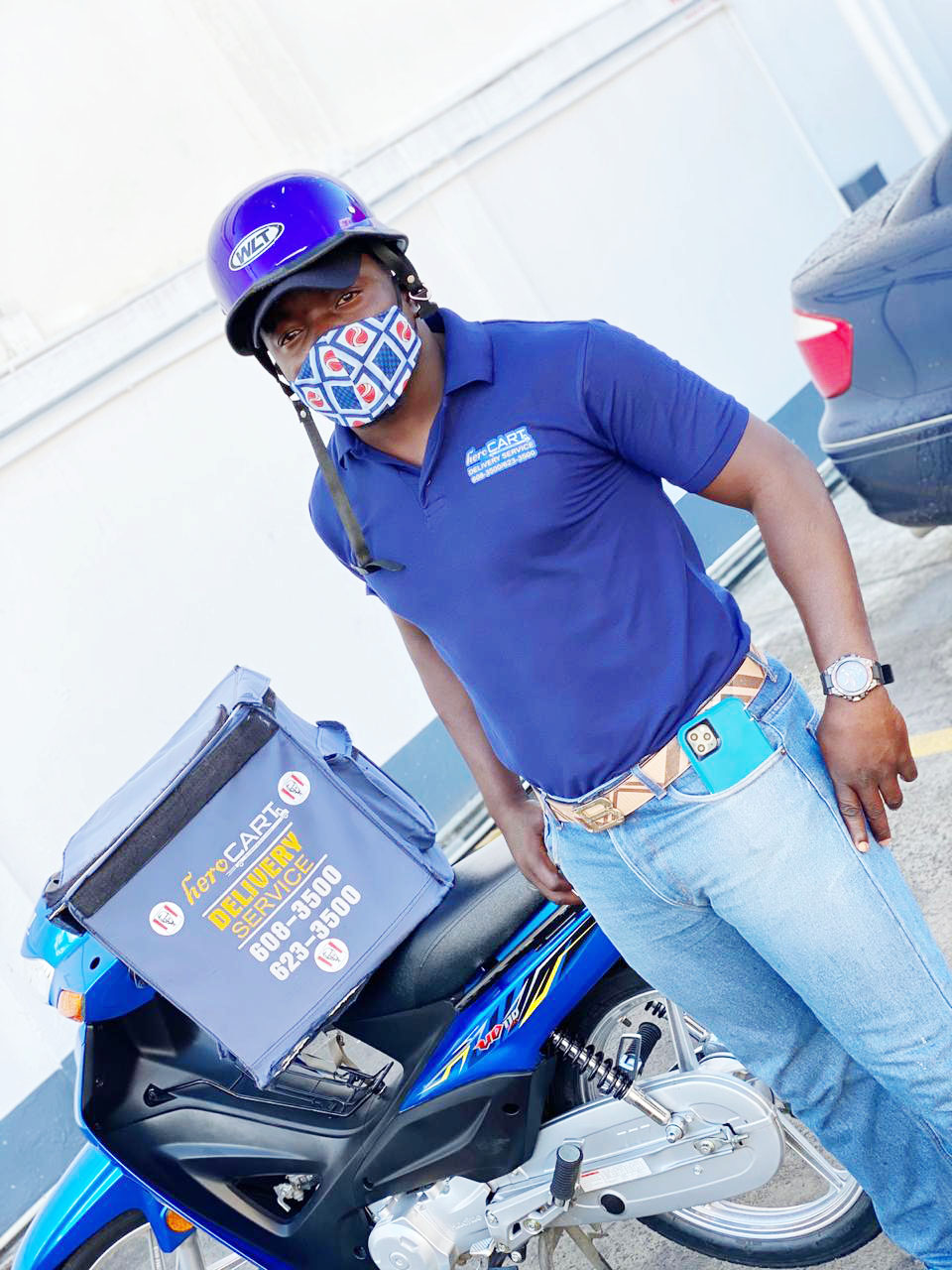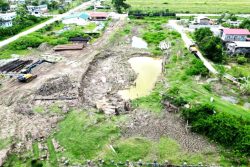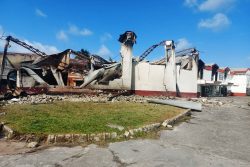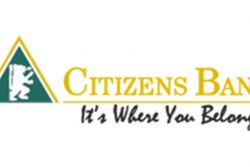As a delivery man, Carl McKenzie is almost always on the go—a state that has become even more pronounced now that many persons who are confining themselves to their homes due to the COVID-19 pandemic are relying on him.
On average, McKenzie does 40 deliveries a day. He works six days a week from 8 am to 6 pm, although some weeks he does not to take a day-off.
McKenzie, who was medic in the Guyana Defence Force, left the army owing to a disagreement. However, by that time he had already started doing delivery work part-time. After leaving the force, he joined another delivery company, HeroCart, in January of this year.

Speaking of the advantages of being a delivery man, McKenzie said that besides the salary, he has come to know just about every corner of Georgetown “to a t.” He shared that he has done deliveries as far as Mahaica, on the East Coast, Timehri, on the East Bank and Leonora, on the West Coast. His efficiency has also seen many customers request that he be the one to deliver their food whenever they call the company. A lot of the deliveries he currently does entail delivering food from fast food restaurants, which for him is “a breeze” to get done.
HeroCart’s employees have all been provided with facemasks and hand sanitizers to better prevent themselves and their customers from contracting COVID-19. McKenzie noted that because HeroCart frequently delivers for KFC customers, the fast food chain provides him and other delivery men with facemasks on a daily basis.
While the food runs are a breeze, McKenzie says he does also get a share of what he calls complex jobs. These are usually supermarket deliveries. While some customers would call ahead to supermarkets and place their orders, leaving McKenzie to only pay for the items and pick them up, most send their lists to the delivery service company, which means he has to do the shopping himself. This can get complex when customers forget to put the names of the brands of items they want and he finds himself staring at a shelf filled with the same product from many different brands. A phone call to the customer can usually solve this problem.
Another challenge is being unable to reach customers when he needs directions
HeroCart, he said, provides their employees with phones and SIM cards so that they can make calls to customers whenever necessary. Each of the workers has a postpaid contract with their respective cellphone carriers. They are also provided with a fixed amount of what is called “float money,” which they keep on them in case of a supermarket job. However, if items on the list they are purchasing turns out to cost more, then they would source the required amount from the company before they shop.
HeroCart, McKenzie further said, does not charge for the time the deliverymen spend in a supermarket shopping for items; all they charge for is the drop. McKenzie said he doesn’t mind as he is tipped by customers almost every day. One time, he said, he was tipped three thousand dollars just for being efficient.
Prior to the current national curfew, which requires persons to be in their homes between 6pm and 6am unless they are an essential worker, he and his colleagues worked from 9 am to 10 pm. They were expected to return whatever is left of their float money at the end of the day along with their phones, motorcycles and cars if it was loaned to them by the company. They returned to the office whenever they were not out on a job. However, the current curfew has seen McKenzie and the other deliverymen working from home. This allows them to keep the company’s motorcycles and cars along with the phones and float money.
Once the curfew ends, McKenzie will be required to work nights again. He shared that during the nights, one always has to be on the alert for robbers and he mentioned that whenever he has to make deliveries to communities notorious for crimes or has to pass through such areas, he takes extra caution.
With the present May/June wet season on, McKenzie and his other colleagues were provided with raincoats. Rainy days, he said, are bad days for delivery guys. “My worst experience was riding on rainy day, rain was flashing in my face and as I was going a car swerve into my way and the bike slide and all my orders fly out of my bag. I had to call the customer and let them know what happen then I had to buy back the orders out of my money”, McKenzie recalled.
He was not injured and his raincoat saved him from bruises. However, his motorcycle got slight scratches. HeroCart he said has a monthly five thousand dollars insurance that takes care of any servicing, or parts their motorcycles or cars might need or any minor damage. Any damage worth more than the amount set aside is to be paid by the rider/driver.
As a single father of a two-year old daughter, McKenzie shared that he tries to be very careful to avoid contracting COVID for her sake. He said that since the outbreak in Guyana he has sent her to stay with his mother as he comes into contact with many persons on a daily basis and is trying his best to keep her out of harm’s way because she is always looking forward to hugs from him whenever he gets home from work. He, however, visits her on his day-off and would call her often. McKenzie is hoping all will be over in regard to the pandemic so he can have his daughter back with him.
The delivery man said that he has seen opportunities to work as a medic at the Georgetown Public Hospital and at the Guyana Fire Service but has decided to not apply due to the pandemic. He intends to take up the opportunity if it’s still there after the pandemic is no more. Nonetheless, he is hopeful he can remain a deliveryman at that time, even if only on a part-time then.
Before he heads out to work every morning, McKenzie always goes for a run, which he follows up with push-ups. McKenzie, who was a distance athlete for Tutorial High School, has also represented Guyana as a runner in Suriname, Barbados and Trinidad. He has run 5k, 10k and half marathon races.










